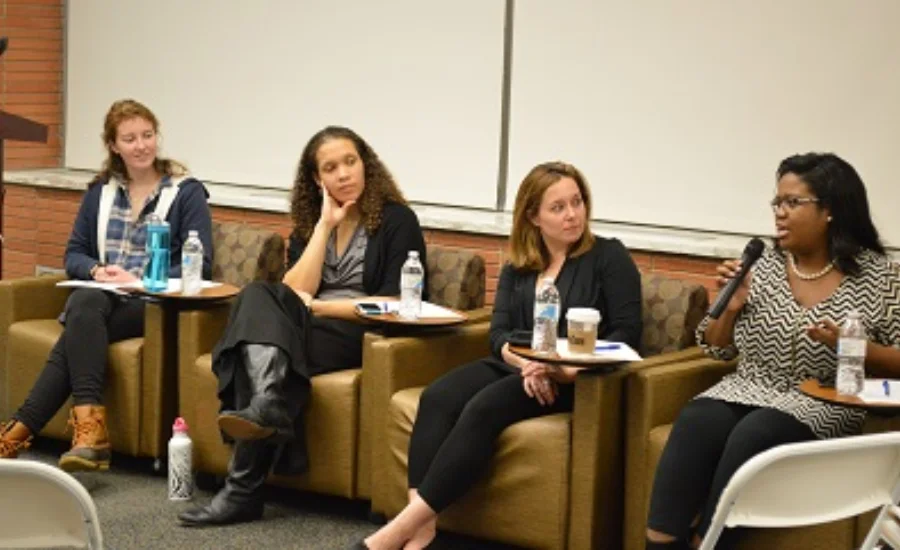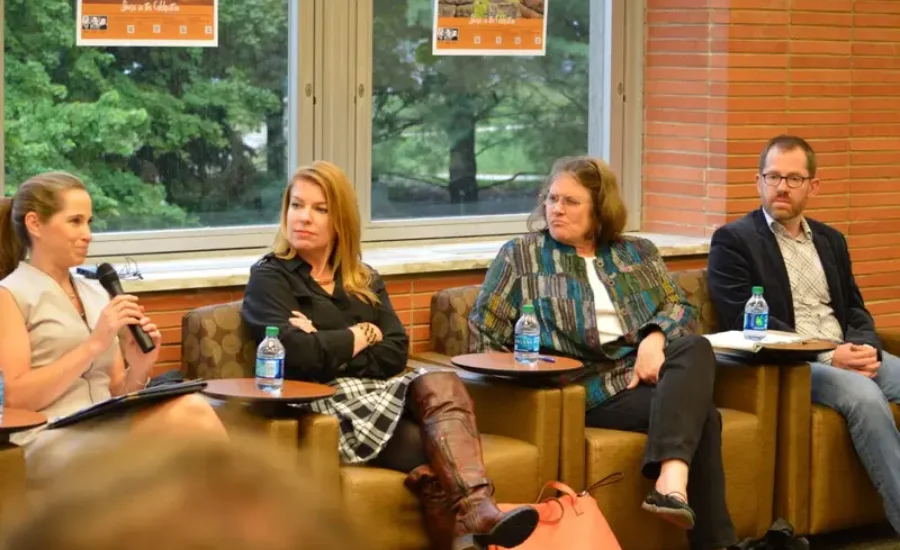Jerusha Conner Rate My Professor Villanova In today’s rapidly changing educational landscape, the responsibilities of educators have evolved significantly. They are no longer confined to traditional teaching roles; instead, they serve as catalysts for change, champions of student engagement, and mentors for the next generation of activists. Among these impactful educators is Jerusha Conner, a distinguished Professor of Education in the Department of Education and Counseling at Villanova University. Her work is deeply rooted in addressing critical issues such as student engagement, youth activism, civic participation, and the incorporation of critical race theory within public education.
Jerusha Conner’s academic contributions are substantial and far-reaching, focusing on the importance of fostering an inclusive and engaged classroom environment. She advocates for integrating critical race theory into educational discourse, recognizing its relevance in understanding the complexities of race and equity in education. Through her research and teaching, Conner not only promotes a more nuanced approach to education but also empowers students to become active participants in their communities.
Her influence extends beyond the classroom, as Conner is a strong proponent of youth activism. She encourages students to engage in civic activities, advocating for social justice and equity. This commitment to activism equips students with the tools they need to effect change, both within their educational environments and in society at large.
Overall, Jerusha Conner’s dedication to enhancing student engagement and promoting critical race theory represents a significant stride in the field of education. Her work is a testament to the transformative power of educators who strive to create a more equitable and just educational landscape, inspiring future generations to be advocates for positive change.
The Importance of Rate My Professor in Enhancing Student Experience

Calculator For students wishing to learn more about their teachers and courses, My Professor is a priceless resource. This platform gives students the power to choose classes wisely, which will have a big impact on their academic career.
Students contribute to a communal evaluation system that feeds on community input by sharing their personal experiences.These peer reviews often provide valuable information about teaching styles, course difficulty, and overall engagement levels, helping prospective students set realistic expectations about their educational experience.
For many, the ratings and comments reflect what they can anticipate from a professor’s teaching approach. A quick scan of the reviews can indicate whether an instructor prioritizes interactive learning or favors traditional lecture methods. Such insights can be pivotal in shaping a student’s choice of courses.
Jerusha Conner: A Champion for Education and Social Justice
Jerusha Conner Rate My Professor Villanova dedication to education was deeply influenced by her upbringing, which instilled in her a strong belief in the transformative power of knowledge. Growing up in an environment that prioritized both education and social justice, Conner embarked on her academic journey by pursuing an undergraduate degree in [relevant field, e.g., Education or Sociology] at [University Name]. These early experiences shaped her desire to explore how education can serve as a powerful catalyst for societal change.
Continuing her educational path, Conner earned a Master’s degree in Education from [University Name]. During this period, she delved into the complexities of student engagement and recognized the critical importance of elevating student voices within the educational framework. Motivated by her growing insights, she furthered her studies with a Ph.D. in Educational Leadership at [University Name], where her research focused on the intersectionality of education, race, and activism.
Jerusha Conner Rate My Professor Villanova: Professional Journey and Impact
Conner joined the faculty at Villanova University after earning her Ph.D. She is currently a professor in the department of education and counseling. In this capacity, she contributes significantly to the preparation of the upcoming generation of educators in addition to sharing her knowledge. Her approach to teaching is based on critical pedagogy, which encourages students to question established narratives and actively participate in discussions about social justice issues.
Beyond her teaching, Conner has made significant contributions to the fields of student engagement, youth activism, and civic involvement through her extensive research. Her work aims to bridge the divide between theoretical concepts and practical applications, illustrating how educators can cultivate inclusive environments that empower students and promote agency. Conner’s commitment to these ideals has made her a prominent figure in the ongoing conversation about the role of education in fostering social change.
Jerusha Conner’s Impact on Students: Insights from Rate My Professor
Jerusha Conner, a prominent educator at Villanova University, has received a wealth of feedback on Rate My Professor, reflecting her diverse teaching methods and student interactions. Many students commend her for being both engaging and approachable, noting that she cultivates an inclusive classroom atmosphere where individuals feel comfortable expressing their ideas and perspectives.
Reviewers frequently highlight her talent for making intricate subjects both accessible and engaging. They appreciate her well-organized lectures, which often incorporate real-world examples that connect seamlessly with the course content. This approach not only enhances understanding but also sparks student interest in the material.
However, some feedback reveals areas for potential enhancement. A handful of students have voiced concerns regarding the clarity of grading processes and the timeliness of feedback on assignments. While the majority of reviews laud her commitment to student success, these critiques indicate a need for improved communication around assessment criteria and expectations.
Overall, Conner’s contributions to her students’ educational journeys are evident, but the feedback also underscores the importance of ongoing dialogue about teaching practices and assessment methods.
Enhancing Student Engagement: Jerusha Conner’s Innovative Approaches
Jerusha Conner Rate My Professor Villanova research focuses on how important student participation is to the learning process. According to her, student engagement is measured by their level of interest and involvement in the learning process. She goes on to say that this connection is essential for both academic performance and personal development. Conner thinks that children are more likely to succeed academically and form social bonds when they have a sincere commitment to their education.
To promote student engagement effectively, Conner advocates for several innovative strategies.
One of her key recommendations is project-based learning, which encourages students to work collaboratively on real-world projects. This method fosters a sense of ownership and relevance in their studies, allowing learners to delve into subjects that pique their interest and harness their natural curiosity.
Implementing student voice initiatives is another essential component of her strategy. Conner emphasizes how crucial it is to provide pupils the chance to express their views and opinions. This can be done in a number of ways, letting students actively influence their learning environments through forums, polls, and group decision-making processes, for example.
Conner also emphasizes the importance of inclusive curriculum design. All pupils’ varied origins and experiences are acknowledged and respected in an inclusive curriculum. Teachers may create a more relevant and engaging learning environment that speaks to each student by incorporating multicultural perspectives and materials.
Through these strategies, Jerusha Conner champions the idea that fostering student engagement is essential for creating dynamic and effective learning environments.
Read More: St Lazarus Religion Abba Kwi
Advancing Education Through Critical Race Theory: Key Benefits

Critical Race Theory (CRT) plays a vital role in modern education by fostering critical consciousness among students. This framework encourages learners to scrutinize societal structures and their impacts on marginalized communities, promoting a deeper understanding of the systemic issues that persist in society.
Moreover, by exploring the complexities of systemic racism, CRT can inspire students to engage more actively in civic matters and advocacy efforts. This heightened awareness often motivates them to participate in community initiatives and social justice movements, reinforcing the importance of civic responsibility.
Incorporating CRT into the educational curriculum also leads to a more inclusive and accurate portrayal of history and society. By addressing the gaps often found in traditional curricula, educators can provide a more holistic view that acknowledges the contributions and experiences of diverse groups. This not only enriches the learning experience but also validates the identities of all students.
Finally, Jerusha Conner highlights that the analytical skills and frameworks offered by CRT equip students with valuable tools for their future. These skills can lead to meaningful long-term outcomes in education, professional environments, and civic engagement, ultimately fostering a more informed and active citizenry. Through these dimensions, CRT significantly enhances the educational landscape, shaping well-rounded individuals ready to navigate and impact their world.
Final Words
Jerusha Conner Rate My Professor Villanova commitment to education exemplifies its profound ability to enact change. By advocating for student engagement, elevating student voices, and promoting critical race theory, she is forging a path toward a more equitable and just educational landscape. As society confronts ongoing challenges related to racial injustice and inequality, Conner’s work shines as a beacon of hope, guiding us toward a more promising future.
Looking ahead, it is crucial for educators, policymakers, and communities to unite in support of Conner’s vision for education—one that emphasizes equity, inclusivity, and the empowerment of every student. By embracing these foundational principles, we can uphold the transformative role of education as a driving force for positive change and social justice. Conner’s insights and advocacy remind us that through collaboration and commitment, we can cultivate an educational environment that nurtures growth and fosters a fairer society for all.
For More Information Check It Out Gravity Internet




